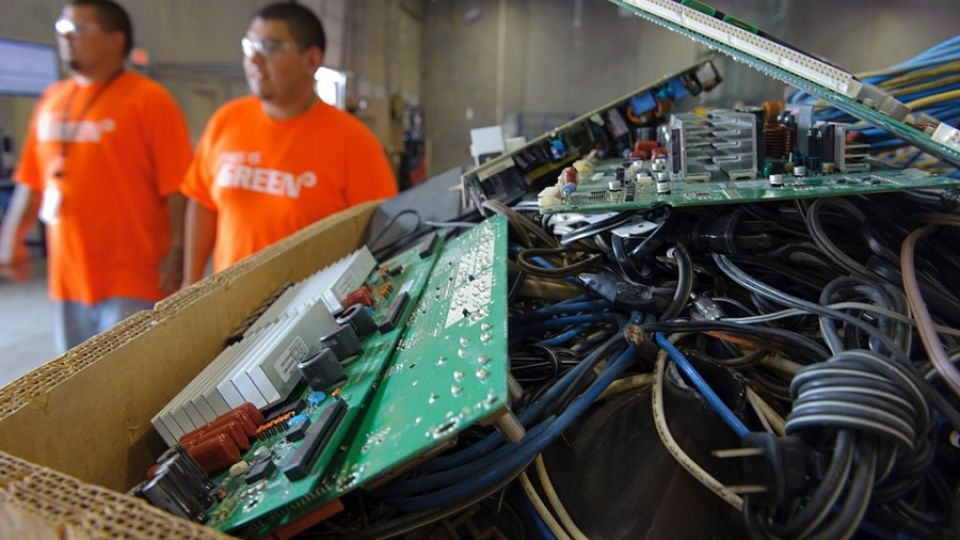The importing of over 400 kinds of scrap electronics into the country will no longer be allowed within the next six months. The Government has reacted to Thailand becoming ‘the world's garbage bin' after China banned imported waste last year. In addition, no foreign plastics will be able to cross the Thai border legally after two years have elapsed. Developed countries have to take responsibility for their waste production themselves, environmentalists say.
The Thai Ministry of Natural Resources and the Environment announced the decision after loud public dissatisfaction with recent data on how global waste pollutes the country. E-waste containing potentially harmful elements – lead or cadmium – gets imported from around the globe, including from developed countries such as the USA, EU, Japan, Hong Kong and Singapore.
"We need to prioritise a good environment and the health of our citizens over industrial development," Minister General Surasak Kanchanarat told the newspaper, The Nation.
A prohibition of toxic plastics was one of the requirements sent by Ecological Alert and Recovery – Thailand (EARTH) in a plea to Thailand’s Prime Minister, Prayut Chan-ocha. Additionally, the NGO called for the removal of zoning exemptions for electronic waste recycling and initiating an investigation into suspicious import permits.
“To achieve these goals, we must address the crisis of waste imports and the waste recycling industry more effectively. The Thai government needs to make quick adjustments to our national laws to protect its citizens and borders before our country is inundated with unwanted waste,” stated EARTH’s Director, Penchom Saetang, as he concluded the appeal.
Thailand also plans to ban all plastic waste imports in the next two years. "We need to ensure that domestic and plastic waste is used by the recycling industry first, before we import these materials from other countries," Surasak added.
Circular tox-economy
“The work of the EARTH organisation was essential to the Government’s decision,” states Jitka Straková, the coordinator of the project on chemical safety in Thailand from the Czech NGO Arnika. “E-waste contains a mixture of toxic chemicals including heavy metals and brominated flame retardants which have been proven to be harmful to human health. The recent massive importation of potentially toxic waste threatens the Thai environment and people's’ lives deeply,” she explains.
In Thailand, environmentally sound technologies for treating the chemicals from e-waste are not available.
The game changed after the decision of the world's biggest waste importer. In 2017, China refused to accept 24 types of foreign waste any longer, with more to follow1. Since then, the rest of Southeast Asia has been facing the menace of becoming the world’s new dumping site. Thailand's ban comes weeks after its regional neighbour Vietnam announced substantial restrictions on waste imports.
Most of the e-waste is imported to Thailand illegally with false customs labels. However, large amounts also get shipped lawfully as the result of the waste management policy of developed countries.
According to experts, the governments of the developed countries face a crucial challenge. "The question is what position the countries from the global North, and the European Union in particular, will take on plastics, whether they will reinforce recycling on their own territory and abolish recycling exceptions and the production of new plastics. The second option is that the problem of toxic plastic will only be shifted to Africa, where the consequences of unsound waste treatment are likely to be even worse," is how Arnika’s expert on toxic substances and recycling, Karolína Brabcová, comments on possible future developments.
___________________________
1 “Chinese government identifies 16 materials to be banned by the end of 2018, another 16 at the end of 2019.” – China announces import ban on an additional 32 scrap materials (RecyclingToday)
Read more:
Thailand closes its doors on e-waste imports (The Sydney Morning Herald)
Govt to ban import of electronic, plastic wastes (The Nation)
This article was prepared and published as a part of the project “Increasing Transparency in Industrial Pollution Management through Citizen Science” funded by the European Union (EU) and co-funded by the Ministry of Foreign Affairs of the Czech Republic within the Framework of the Transition Promotion Programme – a financial assistance programme supporting democracy and human rights using the Czech Republic’s experience with social transition and democratization.
![]()







